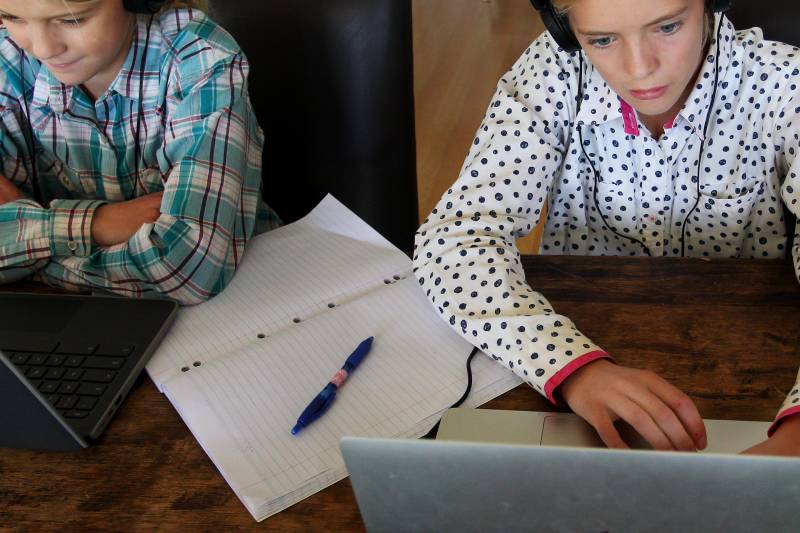Tuesday was Berkeley High School photography teacher Gabriel Berent’s first foray into teaching via Zoom. It was uncomfortable from the start — the grid of faces in front of him reminded him of “The Brady Bunch,” and as the number of students on his screen passed 30, then 40, he struggled to make out their expressions and feel connected.
While he checked in with some — “How are you doing? How many of you are stressed?” — others rolled in late, their screen names popping up in a waiting area pending his approval to join the class.
Among names he recognized, Berent spotted racist slurs and vulgarities. It was disconcerting, but he did his best to weed out the interlopers while keeping up a dialogue with the class.
“I was trying to remind them that photography is really suited for this experience — you get to document your life,” he said. “Trying to let them know we’re in this together, and we’re gonna get through this.”
Not long after that, a naked middle-aged man appeared on screen among the students, spewing a nonsensical string of curses in Spanish.
